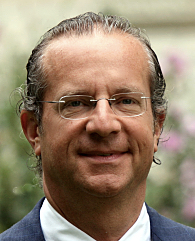Apple surpasses $2 TRILLION, doubling in value in TWO years. It’s INSANE, amid the worst depression ever, and it will end badly
As the stock prices of the big five technology companies rise beyond irrational valuations, something is wrong. Retail buyers have gone ‘all in’ at the top and will get slaughtered.
Apple – which has just become the first US company to hit a two-trillion dollar Market Cap – is doing a four-for-one stock split on August 24. It took Apple 38 years to get a valuation of one trillion dollars, and that valuation doubled in just two years – that's INSANE. Anyone who buys Apple now is likely to lose money – split or no split, it's very overvalued and is part of a big fat bubble that retail investors should stay FAR AWAY from! Because, normally, companies NEVER double in value in such a short period of time – especially during the worst economic depression ever.
The prices of an elite set of listed US companies stocks have become delusionally divorced from the economic realities of Main Street's economic depression. Today, the NASDAQ Composite index rocketed to a breath-taking new high of 11,257.42, about 15 percent higher than the pre-Covid tops, which is impressive. The Standard & Poor's 500 Index traded at 3,399.54, another record high. New records were also set in the surging wealth-inequality gap. The markets have overshot and priced in better than a V-shaped recovery.
Also on rt.com Apple becomes first $2-TRILLION US company after seeing almost 60% growth in 2020I guarantee this “Big Fat Stock Bubble” will end very badly. I have never seen such insanity in my 40 years in financial markets.
What is more surprising is how Apple shares have surged 123 percent in the last 12 months, trading above $468 per share. The company set yet another record today: Apple has become the first American company to have a market capitalization over two trillion dollars. Apple CEO Tim Cook's and the other executives' pay-outs will be astronomical. Do any of the 30 million unemployed Americans want to buy a $1,800 iPhone or a $5,000 MacBook Pro? Good luck with that, Tim.
Apple is a terrific company. They make excellent products, and Apple makes profits. Over the past ten years, Apple has spent nearly 300 billion dollars buying back its shares, which gives an illusion that it is more profitable than it is. Central banks like the Swiss National Bank have been buying Apple shares. The technology company has been financing some of the share buybacks by issuing bonds that Central Banks have been purchasing. Apple borrowed billions at below one percent to fund its massive buyback scheme. Tim Cook, who owns nearly a million shares, is very pleased. But would I buy Apple here at $468? No chance at all.
Apple is an extraordinary case. Apple is the most significant component of the NASDAQ 100 index with 13.6 percent share, Bill Gates’s Microsoft is around 11.2 percent, Jeff Bezos’ Amazon is 11 percent, Brin/Page’s Google 7.2 percent, Mark Zuckerberg's Facebook is approximately 4.3 percent, St. Elon Musk's Tesla, 3.4 percent. To be crystal clear, all of these companies are grossly overvalued at today's prices.
Does history repeat itself?
Between late 1995 and early 2000, the NASDAQ surged over 400 percent, bubbling up to 5,050. That 'bubble’ was known as the dot-com bubble. It is frightening how several companies today are valued significantly higher than many of the companies during that 2000 bubble peak. From those lofty peak 'dot.bomb.' valuations in 2000, tech stocks crashed, and many companies went bust, and the NASDAQ dropped by 80 percent. In 1996, as the NASDAQ began its bubbling, the Federal Reserve Chairman Alan Greenspan, a serial bubble blower, referred to the speculative bubble as "Irrational exuberance." It took over sixteen years for the NASDAQ to climb back over that 5,050 level and only a little over four years to bubble to today's high of 11,257.42. Are you frightened, yet? You should be.
Also on rt.com No one’s flying and MILLIONS of jobs might be lost – but airlines took billions, CEOs got rich and employees got screwed, againAre these stock prices and valuations justified? No, not at all. Are you puzzled by this? Yes. The rich got richer, the middle-class and lower-income got screwed the biggest, but the stealthiest shift in wealth occurred.
This began in 2009, with central banks bailing out the banks at the expense of the taxpayers. Simultaneously, politicians created a diversion: extreme polarization as this financial plunder took place from 2009-2020. The oligarchs of silicon valley now control the news you see, the stories they censor, and the majority of America's wealth. These folks will seek to influence the 2020 presidential election results, so they will pay even less tax and wield even more power.
How did this happen? The central bank money printing inflated the most grotesque asset bubbles in the stock, bond, property, and credit markets in history. All of these new records have been set as the main street, and the world, suffer the most significant economic depression since records began. Over 30 Million Americans are unemployed, the economy contracted by 33 percent in the second quarter.
No article on an outrageous technology bubble would be complete without mentioning Elon Musk's Tesla. Tesla shares are up 39 percent over the last week, 136 percent in the previous 90 days, and 745 percent over the last 52 weeks. St. Elon will ‘earn’ a $10-billion bonus this year alone, and his holdings in Tesla have surged 75 billion dollars in the past year. Not bad, considering Tesla makes no profits, uses creative accounting, receives massive government subsidies, and sells "business-as-usual carbon credits.” Tesla will be the Harvard business school case study in bubbles and irrational exuberance. That St. Elon is one heck of a salesman.
The coming stock crash and economic depression will be swift, severe, and more devastating than an autonomous Tesla smashing into a brick wall at ludicrous speed. Look out below!
Like this story? Share it with a friend!
The statements, views and opinions expressed in this column are solely those of the author and do not necessarily represent those of RT.














